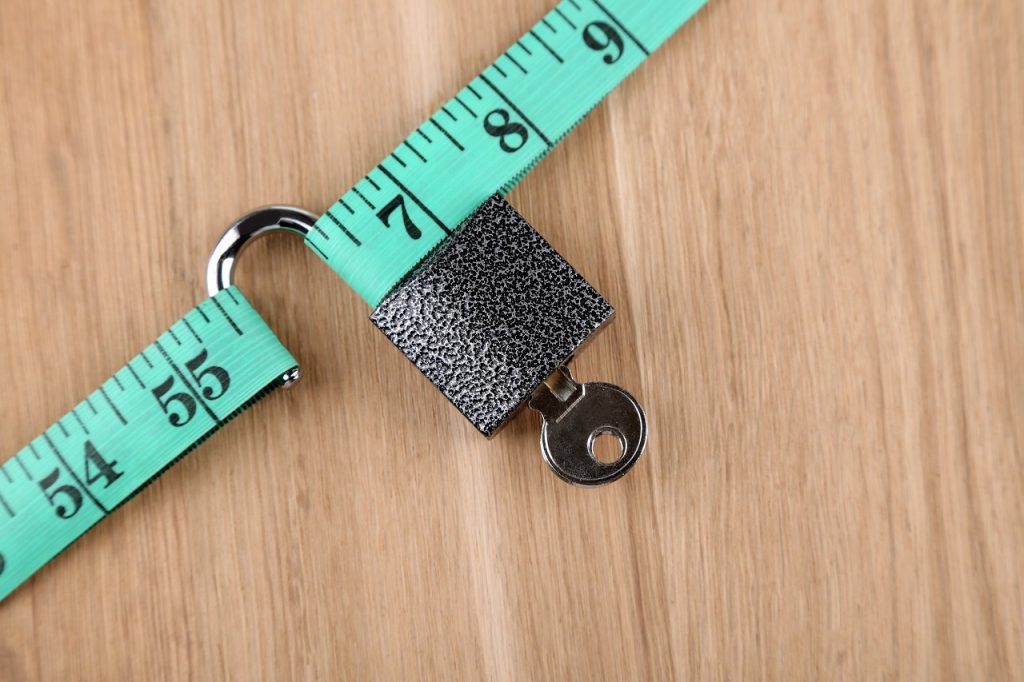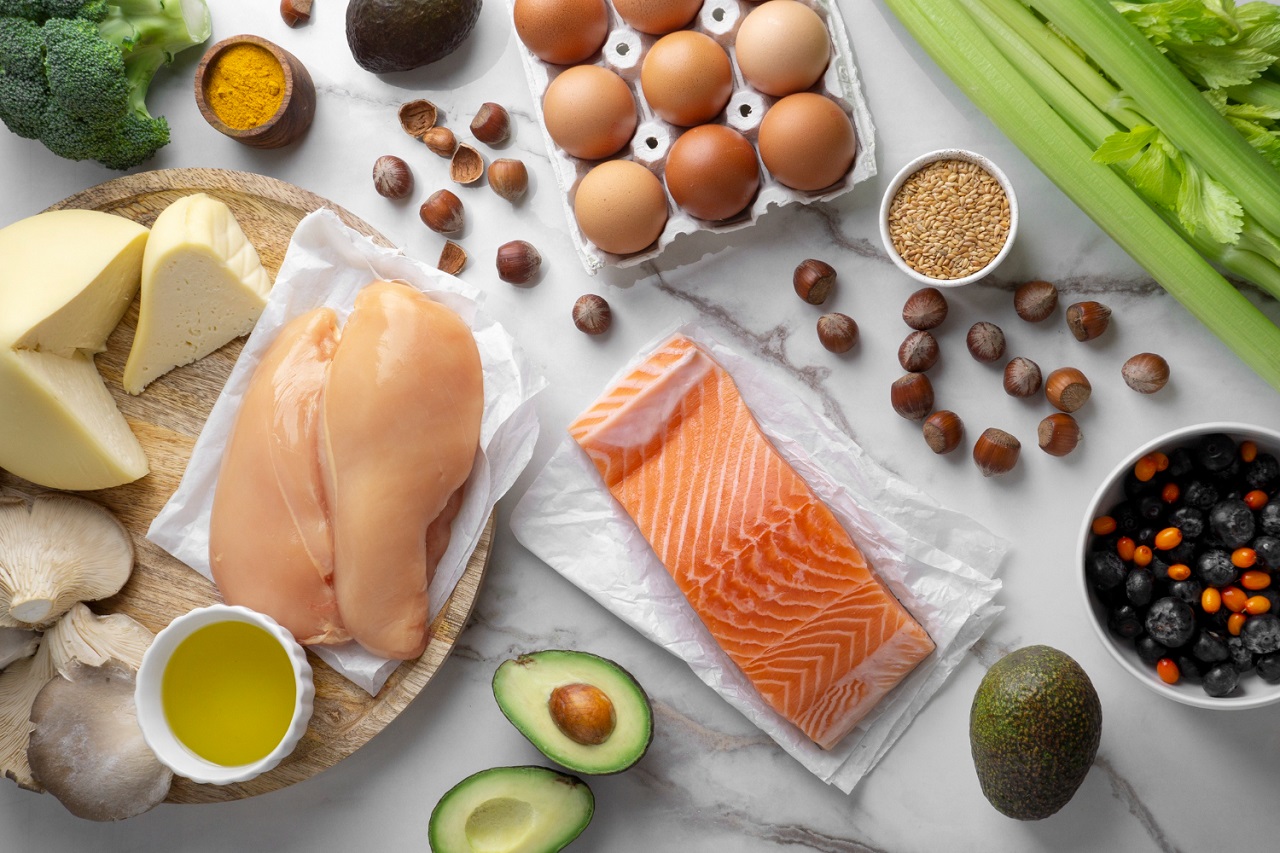
You have been working hard on your weight loss journey by following a healthy, low-calorie diet and improving your exercise habits. Your reward has been watching your weight go down on the weighing scale. Now, at some point, your weight stops decreasing! The weighing scale doesn’t tip in your favor anymore and you’re left frustrated! Don’t worry. You’ve just hit a weight loss plateau.
It’s pretty common and nothing to get discouraged about. It is normal for weight loss to slow down and even stall. But, by understanding what causes a weight loss plateau, you can decide how to respond and avoid backsliding on your new healthy habits.
Here are some ways you can overcome a weight loss plateau to stay on track and keep going!
How Can You Overcome a Weight Loss Plateau?
When you reach a plateau, you may have lost all of the weight you can on your current diet and exercise plan. Ask yourself if you’re satisfied with your current weight or if you want to lose more. In which case, you’ll need to adjust your weight loss program.
If you’re committed to lose more weight, try these tips for getting past the plateau:
1. Drop Your Calorie Intake
To cut down fat, a calorie deficit diet is needed. Consume fewer calories than you burn per day. Maintain a food journal to track your calories. Then slowly reduce your calorie intake by 500 calories per day to boost fat loss. Fat percentage can be measured either by using callipers or with the BCA machine.
2. Rotate Your Workout Routine
Have you been addicted to the treadmill and cross training for the past 4 months? It’s time to switch! Once your muscles become familiar with the same old workout, it makes your regular routine less effective. To see a change in body fat, you have to get outside your fitness comfort zone. Introduce High Intensity Interval Training (HIIT) to burn body fat effectively. Try a total-body circuit. Instead of a basic sprint interval, you’ll work your entire body which will boost your metabolism. Also note that you need to progress slowly and deliberately when incorporating high-intensity exercise into your routine. Doing too much too fast can leave you too sore, tired or even injured.
3. Eat More Protein
 Protein is essential to fat loss, as it maintains your muscle during a calorie deficit. It keeps you satiated, which prevents overeating and snacking on junk food. Also, it boosts your calorie burn throughout the day because takes more energy to digest as compared to carbs or fat. Eat at least one gram of protein per pound of bodyweight every day and get your protein from whole sources like nuts, eggs, lean meats, yogurts, and quality protein powders.
Protein is essential to fat loss, as it maintains your muscle during a calorie deficit. It keeps you satiated, which prevents overeating and snacking on junk food. Also, it boosts your calorie burn throughout the day because takes more energy to digest as compared to carbs or fat. Eat at least one gram of protein per pound of bodyweight every day and get your protein from whole sources like nuts, eggs, lean meats, yogurts, and quality protein powders.
4. Eat More Healthy Fats
To lose more fat, eat more fat. This might seem absurd but healthy fats such as animal fats, real butter, coconut oil, nuts, and avocados actually make you leaner and more muscular—they keep you full & maintain your good testosterone levels. Eating healthy fats force you to lower your carbohydrate intake. Get at least 30 percent of your calories from good sources of fat and never consume artificial fats, which can cause health problems like heart disease.
5. Stay Hydrated
Hydration is important as your body often craves food even when you are mildly dehydrated. We are often confused whether we are thirsty or hungry because the symptoms of hunger and thirst are similar. Aim to drink 2-3L of water per day plus additional fluids lost during activity.
6. Try Intermittent Fasting
Intermittent fasting increases fat oxidation, which promotes more fat loss. Also, fasting along with exercise boosts the insulin sensitivity, helping your body send nutrients to muscle rather than fat. Fasting during a calorie-restricted diet can lead to weight loss.
7. Get Plenty of Sleep
Insufficient sleep can interfere with weight loss by reducing your metabolic rate and shifting your hormone levels to promote hunger and fat storage. Hence, have at least 7-8hrs of good quality sleep.
8. Eat Your Veggies
 Vegetables are loaded with important nutrients and are low in calories and carbs. The fiber in your greens aids digestion and also provide your body the essential antioxidants it needs. Including them might help you break through the weight loss plateau.
Vegetables are loaded with important nutrients and are low in calories and carbs. The fiber in your greens aids digestion and also provide your body the essential antioxidants it needs. Including them might help you break through the weight loss plateau.
9. Don’t Rely on a Weighing Scale
The numbers flashing on your weighing scale might be misleading because it does not reflect the loss of body fat. Instead, focus on how you feel, whether your old clothes fit you or if your measurements have changed.
10. Check for Medical Conditions
If you’re still stuck on the weight loss plateau despite all your efforts, then you might need to check for a medical condition. Check your thyroid levels, hormonal imbalance, PCOD, or for Vitamin deficiencies such as Vitamin D or B12. You will first need to correct a medical issue to lose more weight.
Stress also plays a part in weight loss as it raises the level of cortisol in the body which in turn increases weight. Most important of all, don’t get demotivated and work towards your goals. The weight loss plateau is a part of the journey and with the right direction, you can overcome it!
If this article helped you, let us know your thoughts in the comments below! You can also find more articles on weight loss here. If you want to overcome a weight loss plateau and need some advice or guidance, reach out to our experts by subscribing to GOQii’s Personalised Health Coaching here.
#BeTheForce

 Get ready to boost your immunity and conquer those pesky viral infections! Monsoons and the ever-changing weather can leave us feeling drained and vulnerable to sore throats, colds, and fevers. But fret not! Yoga Therapy comes to the rescue with its comprehensive approach.
Get ready to boost your immunity and conquer those pesky viral infections! Monsoons and the ever-changing weather can leave us feeling drained and vulnerable to sore throats, colds, and fevers. But fret not! Yoga Therapy comes to the rescue with its comprehensive approach. Helps in clearing out the sinus passages, thereby clearing out blockages and allowing for more complete breathing. It invigorates the nervous system and relieves stress and tension.
Helps in clearing out the sinus passages, thereby clearing out blockages and allowing for more complete breathing. It invigorates the nervous system and relieves stress and tension. Opens up the chest. It also sends fresh blood to the head, which helps open up the sinuses further. This asana also activates the thymus glands, one of the main organs of the immune system.
Opens up the chest. It also sends fresh blood to the head, which helps open up the sinuses further. This asana also activates the thymus glands, one of the main organs of the immune system. The Legs Up the Wall Pose is a great pose to practice to counter respiratory ailments. When you practice this asana, you might find relief from headaches or backaches that accompany a cold. Practicing this asana calms the mind and makes you strong as your body deals with the cold and helps in reducing fatigue, which usually follows common cold. This asana helps the immune cells to move through your body.
The Legs Up the Wall Pose is a great pose to practice to counter respiratory ailments. When you practice this asana, you might find relief from headaches or backaches that accompany a cold. Practicing this asana calms the mind and makes you strong as your body deals with the cold and helps in reducing fatigue, which usually follows common cold. This asana helps the immune cells to move through your body. In this asana, your heart is placed higher than the head. There is a reverse pull of gravity that happens when you do that, and this aids in the proper circulation of the lymph and the blood. The mild inversion allows a free flow of white blood cells throughout the body and also helps to drain out the sinuses.
In this asana, your heart is placed higher than the head. There is a reverse pull of gravity that happens when you do that, and this aids in the proper circulation of the lymph and the blood. The mild inversion allows a free flow of white blood cells throughout the body and also helps to drain out the sinuses. This asana opens up the chest and clears out all the passages. It is essential to try and breathe as much as you can while you are in this pose. This will help open up all the blocked areas that are causing the cold.
This asana opens up the chest and clears out all the passages. It is essential to try and breathe as much as you can while you are in this pose. This will help open up all the blocked areas that are causing the cold. When you assume this asana, your chest is raised and your throat is opened up. This improves your breathing and might help alleviate a cold. During colds, one can support the upper thoracic back with a cushion, bolster, or yoga blocks, aiding optimal recovery.
When you assume this asana, your chest is raised and your throat is opened up. This improves your breathing and might help alleviate a cold. During colds, one can support the upper thoracic back with a cushion, bolster, or yoga blocks, aiding optimal recovery. The fresh, dewy weather, the chirping birds and the amazing smell of wet mud! The rainy season has its own charm but along with it, it also brings a host of diseases and infections. One such being a compromised Gut! The symptoms of a compromised gut may include an upset stomach, acidity, bloating, flatulence, gas, etc. making it crucial to maintain a healthy gut during this season.
The fresh, dewy weather, the chirping birds and the amazing smell of wet mud! The rainy season has its own charm but along with it, it also brings a host of diseases and infections. One such being a compromised Gut! The symptoms of a compromised gut may include an upset stomach, acidity, bloating, flatulence, gas, etc. making it crucial to maintain a healthy gut during this season.


